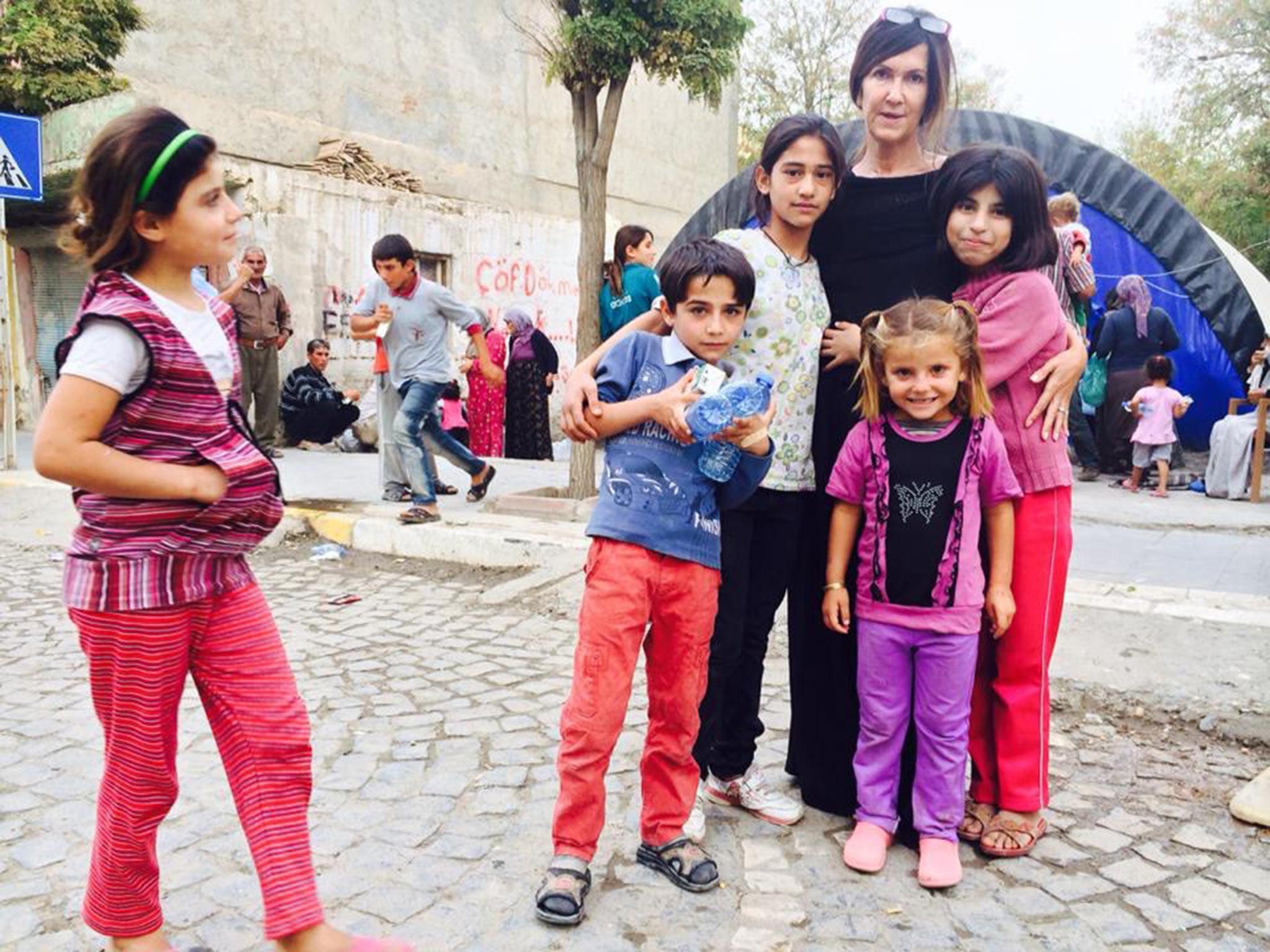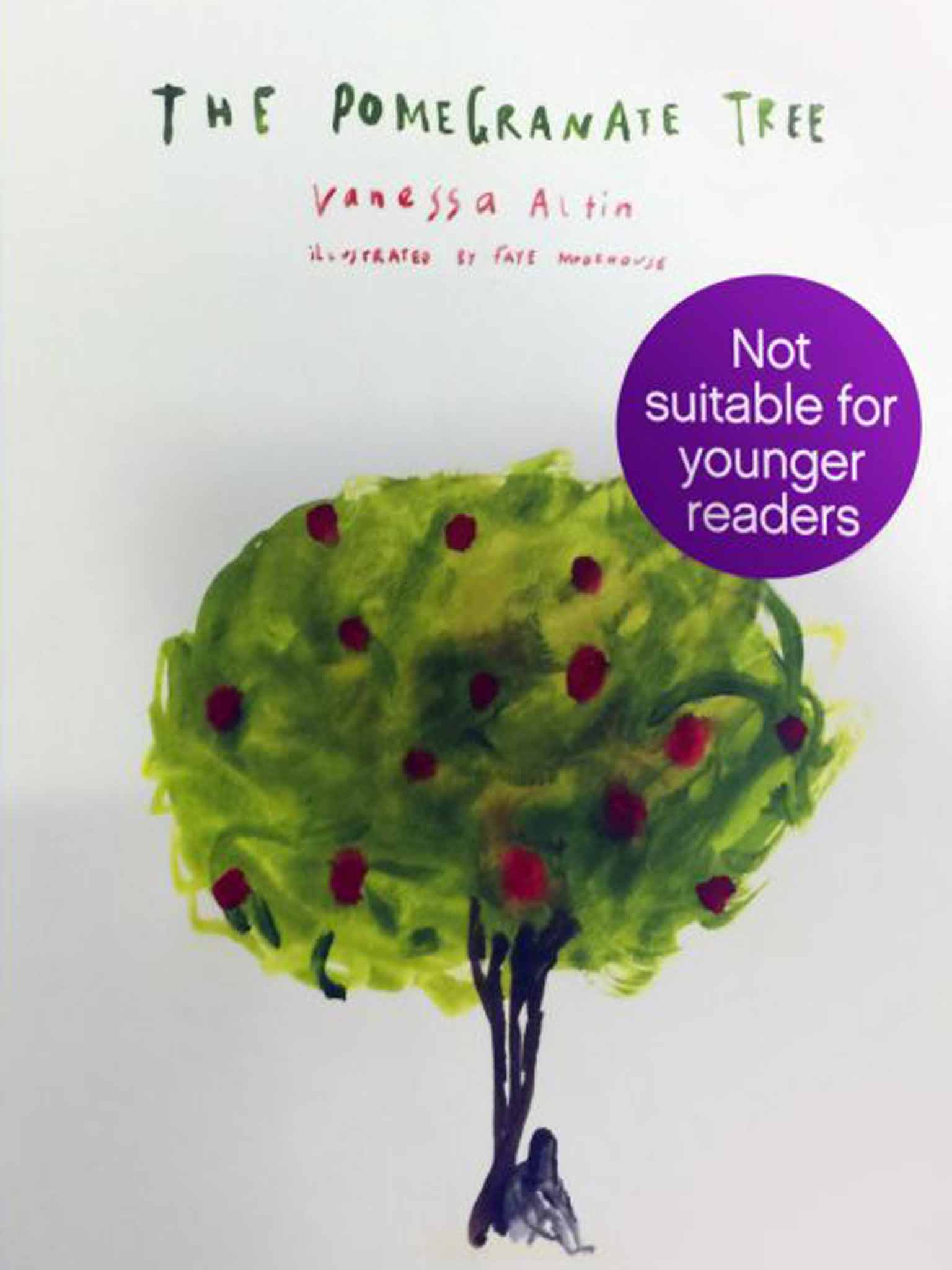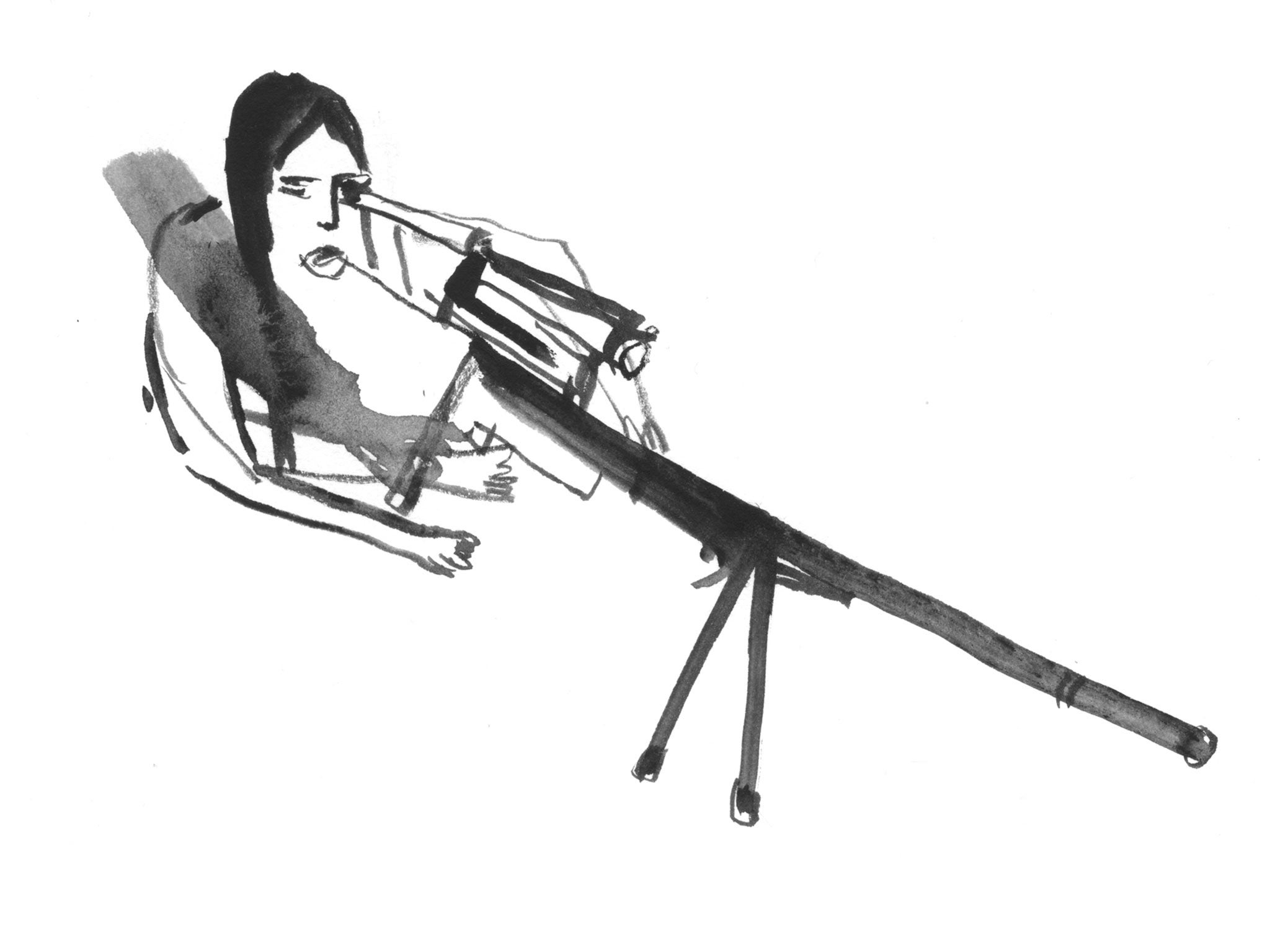Vanessa Altin tackles Isis in 'The Pomegranate Tree', a moving novel about the Syrian war for young adults
This gripping illuminating adventure story for the young-adult market is filled with as much hope and love as death and peril

Vanessa Altin was having the time of her career as the East Anglia correspondent for the News of the World.
In 15 years at the Sunday red top, she helped to lock up a child killer, campaign for fox welfare and skewer the BBC presenter Angus Deayton.
Then came the foreign assignment that changed her life. Ultimately it would inspire her to write a children's book about the so-called Islamic State that begins with the attempted beheading of a baby.
Before we get to The Pomegranate Tree, which has earned a health warning at Altin's local Waterstone's, we have to go back to the News of the World, long before it hacked itself to death in 2011.
In 1999, Altin's editors had heard British women were travelling to the Turkish Riviera to meet and marry younger local men. So the reporter, then 35, packed her sunhat and waterskis (why not? She liked waterskiing) and booked a trip to the Mediterranean resort of Marmaris.
After a few days, Altin called her editor to tell him the bad news – the story didn't stand up. Except that it did, in a big way. It was the waterskiing that did it for the journalist.
“So I'm walking down the seafront like Norman Wisdom, knocking people out with my ski every time I turn round,” she recalls. “Then I meet a guy who runs a watersports company and he says, 'why don't you leave that here?'”
He was eight years younger than Altin, who is now 52, and “looked like George Clooney”.
They were engaged within 12 months.
Now married for 14 years, they have two daughters.
“My mum was not impressed,” Altin recalls. “Nor was my editor. I had to kill the story so that I didn't look too ridiculous in the office.”
Altin's husband, Adnan, is Kurdish, and comes from a large tribe from the Turkish border with Syria. More than 10,000 people attended their three-day wedding.
For years, life was great. The couple divided their year between Frinton, on the Essex coast, where Altin had grown up, and Turkey, where Vanessa filed stories about misbehaving Brits to newspapers in London (she left the News of the World in 2006).
The peace ended as the Arab Spring crashed on the shores of Turkey. But with citizenship and a fixer and translator for a husband, Altin was well positioned to respond. In October 2014, she travelled to the border with Syria, where thousands of Kurds were fleeing the Islamic State siege of Kobane. They told stories of beheadings and fear, but it was the children's plight that really got to her.
“I'd done enough stories about appalling things that I thought I was unshockable, but there were just kids everywhere, from toddlers to teens,” she says. “They were unaccompanied and hungry.”
Many of the children had no food or shelter, separated as they were from relatives who had stayed to fight. They hoped that their families were still alive, but Altin knew how unlikely that was. While reporting for the Sunday Mirror, she and her husband raised money among friends to buy food and toys for the children. The couple also had contacts who were in touch with Kurdish fighters, one of whom had recovered a photograph from the phone of a dead Isis fanatic. It shows a baby girl, perhaps one year old, screaming as a man holds a knife to her throat while pressing her tiny head into the ground.

“I didn't know that they beheaded babies,” Altin says, looking at the picture on her own phone. “But ordinarily when these things are played out, they record it all. But this was the only picture of the little girl that they had. What happened to her?”
Altin's brain whirred with thoughts of the baby's fate, and the uncertain future of the children she had met. When she returned home to her own daughters, she realised neither she nor they had much hope of making sense of what was happening. She was also struck by popular ignorance among many of her friends in Britain about the Syrian war, and how that was being echoed in her children's playground.
“I realised that I might be able to do something because, as a writer, I could give a voice to those children,” she says.
Altin recognised the power of a child's eye in storytelling, because “whoever's fault it is, it's not theirs… yet they're the ones that suffer the most”.
Within weeks she had written the first chapter of what became The Pomegranate Tree. Using what she had seen and what she had learned about Kurdish culture from her husband, Altin created a fictional family for Dilvan, a girl of 13 separated from her parents and sisters during the siege of her town by “the ratmen”, the word the girl makes up to represent Isis.
Dilvan watches from a distance as her family are thrown into a truck. Her baby sister, Hira, “was trembling as the ratman pushed her head into the floor to hold her pudgy little body still and bent down jabbing his dagger into her throat”.
The book follows Dilvan as she joins forces with a heroic Kurdish fighter, a woman called Rehana, and tries to find her family again. It is a gripping, illuminating adventure story for the young-adult market, filled with as much hope and love as death and peril. But Altin was disappointed by the wider response.
“In the Colchester Waterstone's, they put a warning sticker on it and stuck it two shelves above The Boy in the Striped Pyjamas,” she says. “So a little bit of light concentration camp reading is fine – no sticker for that – but not my book.”

Meanwhile, children – including Altin's daughter, Rozerin, who is 12 – have responded well; school groups have been transfixed during readings; but three headteachers have cancelled appearances at the last minute.
“Syrian children are forced to live this reality yet ours are so mollycoddled they can't even read about it,” she says. “They've seen this stuff on the news, they know what's going on.”
Sales have been fairly modest so far, “but if Angelina [Jolie] buys a copy and makes a film out of it, then we'll all be laughing,” she says.
A percentage of royalties will go to Heyva Sor, the Kurdish Red Crescent. In the meantime, Altin has been asked to write a second book following Dilwan's family, while she also determines the fate of her own.
Adnan and his business have been affected by growing hostility towards Kurds in Turkey, and the couple don't know when they and their daughters, who go to school in Britain, will reunite. There are plans to translate the first book, but Altin says some of her new Kurdish family have already been able to enjoy it.
“They just like the idea someone's bothered to write anything about them,” she says.
'The Pomegranate Tree' by Vanessa Altin (Blanket Press, £12.99)
Join our commenting forum
Join thought-provoking conversations, follow other Independent readers and see their replies
Comments
Bookmark popover
Removed from bookmarks